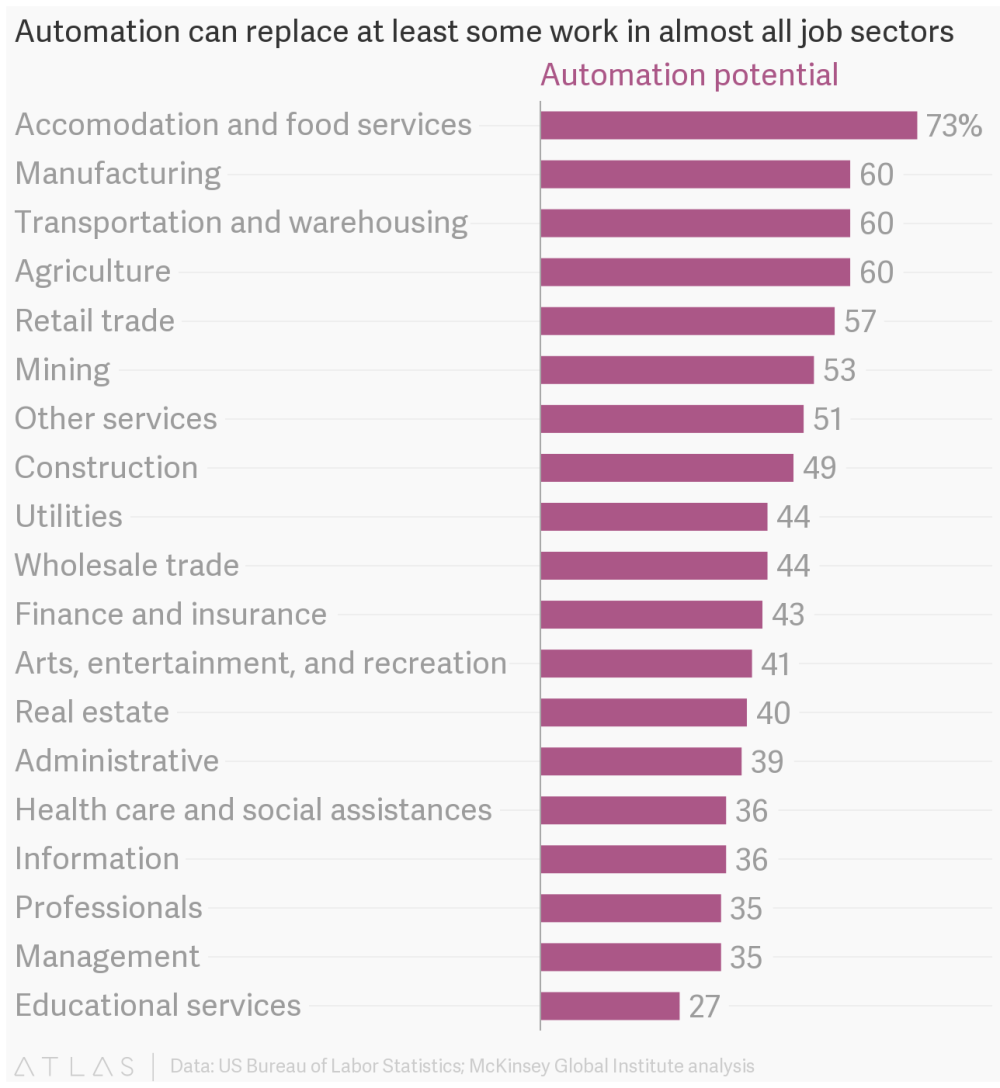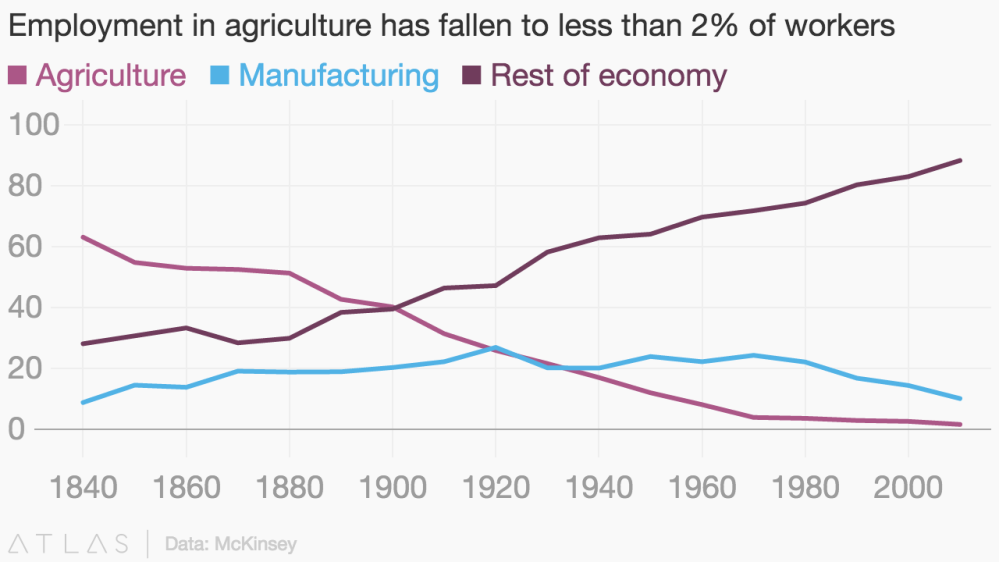By 2030 about 800 million workers worldwide may be out of jobs due to automation, according to global management consultants McKinsey Global Institute.

The World Economic Forum’s (WEF’s) Future of Jobs report, based on research by the Future of Humanity Institute at Oxford University predicts that AI will “outperform humans in tasks such as:”
- translating languages (by 2024)
- writing high-school essays (by 2026)
- driving a truck (by 2027)
But, “jobs such as:
- working in retail (by 2031)
- writing a bestselling book (by 2049)
- working as a surgeon (by 2053)
will take longer to replace, as robots will take longer to better humans at these skills.”
A February 2018 PwC report identified that there will “three waves of automation between now and the mid-2030s: algorithm wave, augmentation wave and autonomy wave.” Repetitive and routine tasks will be replaced by automation during the algorithm wave (early 2020s). The later two waves (late 2020s to mid 2030s) will be where automation replaces the most jobs. Women will be more affected than men.
However, historically, technology tends to create new jobs. 8-9% of the global working population will be in jobs that haven’t yet been invented. Healthcare and technology will see the largest growth.
In fact, a paper by James Bessen of the Boston University School of Law reveals that only one job occupation in the US has been replaced automation in the last 70 years or so.

Likewise, another McKinsey report shows that while jobs in agriculture and manufacturing were replaced almost entirely by automation, the growth of jobs in every other industry grew significantly. There are already many job opportunities for AI and automation and it’s growing rapidly.

If it is anything like the Industrial Revolution, the AI/automation takeover may create more jobs in future. If not, we’re all in trouble! Unless you’re an AI or a robot.
Featured image from Pixabay.
